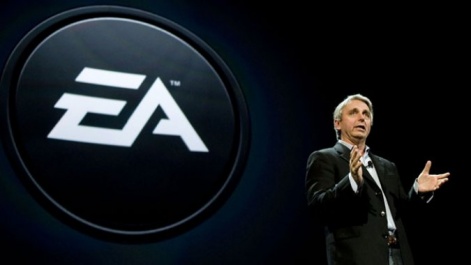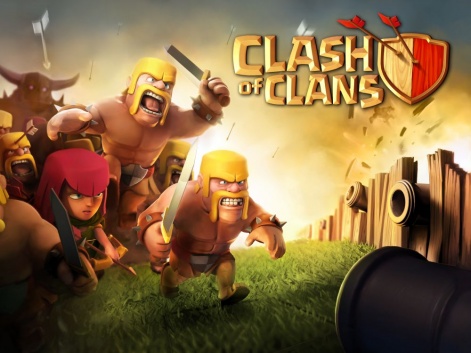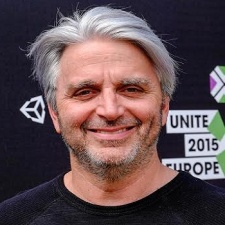From the boardroom of the twice-voted Worst Company in America to the helm of the wholesome indie darling Unity Technologies, John Riccitiello has arguably experienced both the best and worst of the gaming community.
However, attending an event like Unite Europe 2015 in Amsterdam quickly dispels any dated misconception you may have of Unity as the plucky Little Engine That Could - that's long gone.
Unity is now an undeniably huge company.
While there, I caught up with Riccitiello, now in his 8th month as CEO to see what insights about mobile - and the industry as a whole - he had gained from his time at Unity so far, and EA before that.
Revolutions
I kick things off by discussing the Unite keynote - Riccitiello's first, in fact, and one that's available to watch in its entirety on YouTube. I note the apparent focus on analytics, and question whether this speaks to an increasing focus on games-as-a-service.
“Let's define terms for a second,” he says. “Games-as-a-product versus games-as-a-service... if you go back to the packaged goods era, for the most part games never got patched.”
“You shipped a game, it was either good or bad, and then you're done. I'd say today [that's] an incredibly rare circumstance.”
“You're shipping a game for mobile [or PC] and you're putting up new content on a regular basis, and even in console probably 30-35 percent of revenue for major games is from downloadable content released post-launch.”
“So I'm not sure that [games-as-a-service] is an irrelevant concept, just a definition of the reality... to call it a revolution would be fair, but it's a revolution largely complete.”
Speaking of revolutions, I bring up Riccitiello's legacy at EA. More specifically, his push towards mobile and digital during his second stint at the company, which came a head with its position as top grossing app publisher in 2012.
Is EA still reaping the rewards of seeds sown by Riccitiello?
“It's interesting you mention it, as I got an email today,” he tells me. “Brian Pitts, who is a major industry analyst, rated EA as the best-positioned company in the games industry and gave them a major upgrade.”
I find it stunning that people would even apply for jobs at EA and not play games.John Riccitiello
“He said they're positioned against two-year tailwinds, faster expected console sales, transition to high-margin digital - which is the strategy I was talking about from 2007 to my entire time there.”
“It took a while to get there, but that is what I was seeking to do and it turns out to have been the right thing to have focused on, vindicated by three things we pointed out.”
“[The first was] 'fewer, better, bigger'. We cut titles from 60-70 to high teens, revenue went up, so driving up quality worked out. Console worked out - people didn't expect console to come back in the way that it did and it worked out fine - and digital turned out to be right.”
Business or pleasure
While we're on the subject of Riccitiello's past, I bring up an old article from his EA days in which it was made to appear somehow surprising that he even played games - the implicit allegation being those in the top tier of the industry don't play games themselves. Is there any truth to it?
“I find it stunning that people would even apply for jobs at EA and not play games,” he says.
“If you're going to be in product, or marketing, or development and you don't play games, it's kind of silly. Why would you be there?”
“Can you imagine if I was a publisher, and you came in applying for a job either editing or marketing books, but you didn't read - what would you be there for? For anyone in our industry to not game is about as foreign as that.”

Back to the present day, and another of the bigger features pertaining to mobile in the keynote was Unity Ads, the service best-known for accelerating Crossy Road to remarkable profitability. Is it a big focus right now?
“You have to do one thing well first before you go on to the second thing,” he tells me. “So most of our resources are going into the capability to build better games... that's what we're about first.”
“But we know that most companies, even those that build beautiful games, don't succeed financially - and if they don't succeed financially they're not going to get a second shot. So we're putting a lot of emphasis on the things that will enable them to find success commercially.”
“I give out reports to everyone at Unity on a regular basis, and I never mention financials, because for the most part people here are not motivated by financials. For the most part people are in the games industry for reasons other than financial reward... but they're also not into starving.”
It [F2P] can be done well, but it's often not. There's a point where you just feel like you're being abused.John Riccitiello
“So to a degree we can help them in a seamless, easy way that doesn't seem crass or craven, using this innovation and putting that much control in the user's hand over whether they see an ad... And what that allows is for the developer to feel good about how what they're doing to monetise.”
Not-so-micro transactions
Is Riccitiello against the more established forms of microtransaction-led monetisation, then? Not wholly, and he's seemingly willing to put his money where his mouth is on the subject.
“I really like some free-to-play games,” he says, with some hesitation. “I admit to having spent, I don't know, 5 grand on Clash of Clans? And I'm not even in their top 1000 spenders, probably.”
“And then I got into Empires and Allies for a while and I probably spent $300-$400 on that. They had enough pace, and the purchases were satisfying. So it can be done well, but it's often not. There's a point where you just feel like you're being abused.”

An increasing sense I got from around the show, and at my other appointments, was that free-to-play monetisation has reached a point of absurdity, with extreme UA proving a massive barrier of entry, and many instead resorting to high-end and hardcore experiences.
Does Riccitiello, despite the obvious penchant for the occasional IAP, agree?
“Ah, no, there's always more use for Kate Upton,” he grins.
“I think what's actually reached absurdity is the fact that you don't see a premium game in the top 75 on either iOS or Android. Microtransaction is in fact a game design decision, so 95-98 percent of the games being built today are in fact subscribing to the same design conventions.”
“The companies I admire are people like [Cities Skylines dev] Colossal Order that release a premium product, or people over at Telltale Games building great story-based games that are premium. I think we're going to see more of that.”
And John Riccitiello, as history has proven, is a man whose predictions are worth keeping a keen eye on.






















